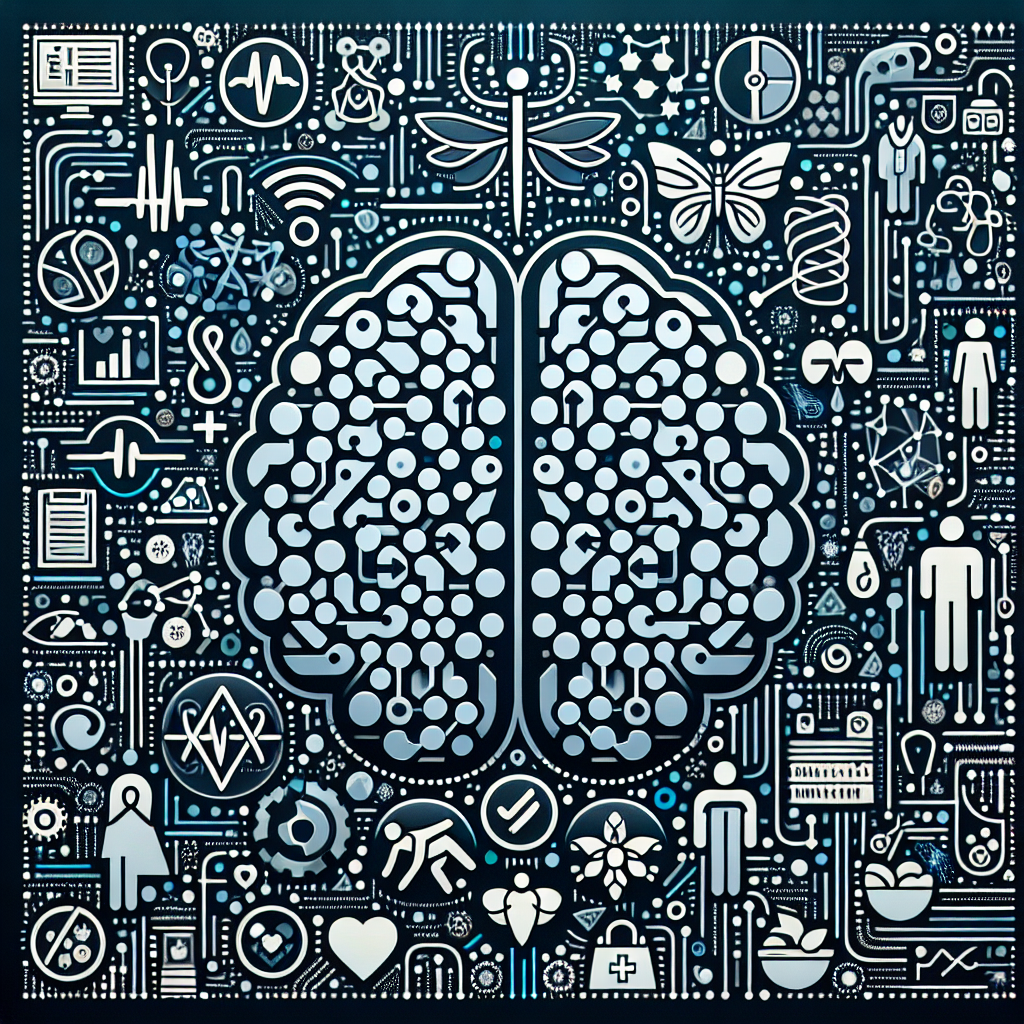AI integration is revolutionizing the healthcare industry in more ways than one. One of the most significant impacts of AI integration is on health behavior change. With the help of AI technology, healthcare providers are able to personalize care plans, track patient progress, and provide real-time feedback to encourage healthy behaviors. In this article, we will explore the ways in which AI is transforming health behavior change and the implications it has for the future of healthcare.
Personalized Care Plans
One of the key benefits of AI integration in healthcare is the ability to create personalized care plans for patients. AI algorithms can analyze vast amounts of data, including medical history, genetic information, lifestyle habits, and more, to tailor treatment plans to individual needs. This personalized approach to care not only improves patient outcomes but also increases patient engagement and adherence to treatment plans.
For example, AI-powered mobile apps can track a patient’s daily activity levels, sleep patterns, and dietary habits to provide personalized recommendations for improving overall health. These apps can also send reminders and motivational messages to encourage healthy behaviors, such as exercising regularly or eating a balanced diet. By leveraging AI technology, healthcare providers can empower patients to take control of their health and make positive changes to their lifestyle.
Real-Time Feedback
Another significant impact of AI integration on health behavior change is the ability to provide real-time feedback to patients. Traditional healthcare models often rely on periodic check-ins with healthcare providers, which can lead to gaps in communication and missed opportunities for intervention. AI technology, on the other hand, enables continuous monitoring of patient data and the ability to provide instant feedback on health behaviors.
For example, wearable devices equipped with AI algorithms can track a patient’s vital signs, activity levels, and sleep patterns in real-time. This data can be analyzed to identify trends and patterns that may indicate potential health risks or opportunities for improvement. Healthcare providers can then use this information to provide timely feedback and interventions to help patients make healthier choices.
Improved Patient Engagement
AI integration in healthcare also has the potential to improve patient engagement in health behavior change. By leveraging AI technology, healthcare providers can deliver personalized and interactive interventions that are tailored to individual preferences and needs. This can help to increase patient motivation and commitment to making positive changes to their health.
For example, AI-powered chatbots can engage with patients in natural language conversations to provide support, guidance, and encouragement. These chatbots can answer questions, provide feedback on progress, and offer personalized recommendations for improving health behaviors. By creating a more interactive and engaging experience, AI technology can help patients stay motivated and committed to their health goals.
Challenges and Considerations
While the impact of AI integration on health behavior change is promising, there are also challenges and considerations that need to be addressed. One of the main concerns is the potential for bias in AI algorithms, which can lead to disparities in care and outcomes for certain populations. It is important for healthcare providers to carefully evaluate and monitor the performance of AI systems to ensure that they are fair and unbiased.
Another challenge is the need for robust data privacy and security measures to protect patient information. AI technology relies on vast amounts of data to make accurate predictions and recommendations, which raises concerns about the security and confidentiality of this information. Healthcare providers must prioritize data protection and compliance with regulations to safeguard patient privacy.
Furthermore, there is a need for ongoing training and education to ensure that healthcare providers are equipped to effectively leverage AI technology in health behavior change. It is important for providers to understand how AI algorithms work, how to interpret and use the data generated by these systems, and how to effectively communicate with patients using AI-powered tools.
FAQs
Q: How can AI technology help me improve my health behaviors?
A: AI technology can help you improve your health behaviors by providing personalized recommendations, tracking your progress, and offering real-time feedback. AI-powered tools can analyze your data to identify opportunities for improvement and provide guidance on making healthier choices.
Q: Is AI integration in healthcare safe and secure?
A: Healthcare providers must prioritize data privacy and security to ensure that patient information is protected. AI systems should comply with regulations and best practices for data protection to safeguard patient privacy.
Q: How can healthcare providers use AI technology to support behavior change?
A: Healthcare providers can use AI technology to create personalized care plans, deliver real-time feedback, and improve patient engagement in behavior change. AI-powered tools can help providers track patient data, identify trends, and provide timely interventions to support healthier choices.
In conclusion, AI integration is transforming health behavior change by enabling personalized care plans, real-time feedback, and improved patient engagement. While there are challenges and considerations that need to be addressed, the potential benefits of AI technology in healthcare are immense. By leveraging AI technology, healthcare providers can empower patients to take control of their health and make positive changes to their lifestyle.

